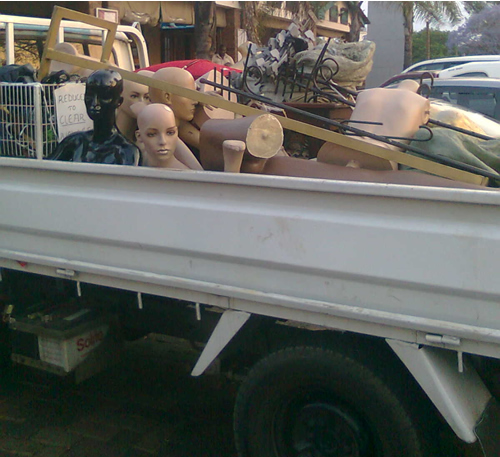Service delivery has gone to the dogs
Wednesday, October 10th, 2012 by Lenard KamwendoServices which citizens of a nation are supposed to get from local authorities as a basic right have become a privilege.
In almost every town in Zimbabwe citizens are bemoaning poor service delivery – from dry taps to dark nights caused by load shedding. Mounting complaints fall on deaf ears. Recently it was reported that City of Harare’s wage bill has doubled leaving little revenue going to service delivery.
For decades now the Zambezi water project (now Zambezi water pipe dream), which is supposed to help solve Bulawayo’s water woes, has not produced positive results even when the Movement for Democratic Change took over the Ministry of Water. Residents of Bulawayo recently had to resort to the so-called “Big Flush” and Councilor Thaba Moyo was quoted saying, “The big flush is meant to take care of areas that would have been placed under water rationing. Residents will be asked to systematically flush all their toilets so that sufficient water will be deposited in the system in order to get rid of the material that would have dried up and blocked the system.” I just can’t imagine residents trying to beat evening traffic to reach home so that they can comply with the 7:30 pm Big Flush directive.
Service delivery problems are even affecting smaller towns like Gweru and Masvingo.
Try to imagine a growing town like Chitungwiza with no independent water supply of its own having to rely on City of Harare for supply of this precious basic right which sometimes gets disconnected for non-payment.
Soon it will be raining and heaps of gravel will be dumped along the roads to patch up pothole riddled partly tarred roads. This exercise of patching tarred roads with gravel has not done any good to the roads as the potholes have increase to ditches making the roads impassable during rainy season.
And, instead of just starting with putting the pre-paid meters in households somebody didn’t do his/her job right at Zimbabwe’s power distribution company ZESA by wasting money ordering millions of bulbs to save electricity which residents only receive less than twelve hours a day.












